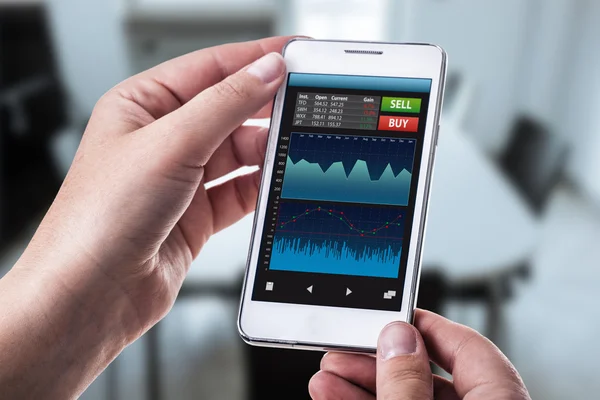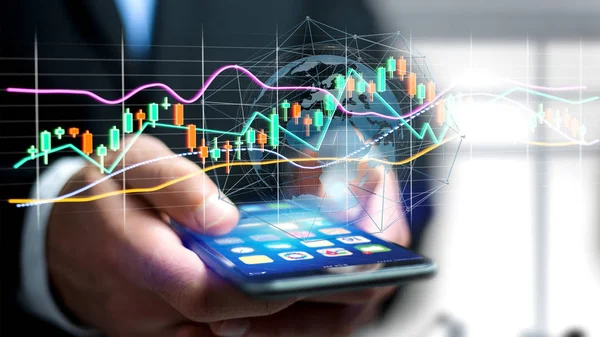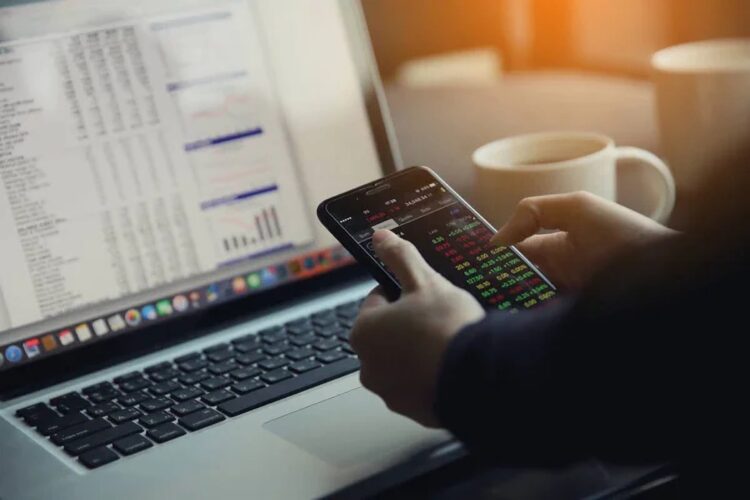The rapid technological advancements in the 21st century and the prevalence of smartphones have revolutionized many industries, and the foreign exchange market is no exception. Mobile forex trading, though still in its infancy, is fast emerging as a viable alternative to traditional trading methods. This article explores the opportunities and challenges that this technology presents, as well as how it is shaping the future of forex trading.
Understanding the Basics of Mobile Forex Trading
Mobile forex trading, as the name suggests, allows individuals to trade foreign currencies using their smartphones or tablets. Users typically download an app provided by a forex broker, and through this app, they can access live currency exchange rates, place trades, manage their accounts, and analyze market trends. The user interfaces are designed to be user-friendly, making it easier for both novice and experienced traders to navigate.
Mobile forex trading offers the flexibility and convenience of being able to trade from anywhere, at any time. This is a significant advantage over traditional forex trading, which typically requires a computer and a stable internet connection. Mobile forex traders can react instantly to market changes, whether they are at home, at work, or on the go.
But while mobile forex trading presents numerous advantages, it also comes with its share of challenges. The small screen size can make it more difficult to analyze complex charts and graphs, and there may be limitations in the number of trades that can be executed simultaneously. Additionally, the security of mobile devices can vary greatly, potentially exposing traders to the risk of hacks and other forms of cybercrime.
Exploring the Opportunities in Mobile Forex Trading

The opportunities that mobile forex trading presents are nothing short of transformative. Firstly, it democratizes access to the forex market. Anyone with a smartphone and an internet connection can now participate in the world’s largest and most liquid financial market. This has opened up new investment opportunities for individuals who were previously unable to participate due to geographical or financial constraints.
Secondly, mobile forex trading facilitates real-time trading. Traders are now able to respond instantly to market developments, ultimately enabling them to make more informed and timely trading decisions. This, in turn, can enhance their trading performance and profitability.
Finally, mobile forex trading offers unparalleled convenience. Traders can manage their accounts, place trades, and monitor market trends from the palm of their hands, without the need for a computer or a physical presence at a forex exchange.
Addressing the Challenges of Mobile Forex Trading
Despite its numerous advantages, mobile forex trading is not without its challenges. The most prominent of these is perhaps the issue of security. Mobile devices are more vulnerable to hacking than desktop computers, and this exposes traders to the risk of financial loss. To mitigate this risk, brokers and traders alike need to prioritize cybersecurity and implement strong security measures.
Another challenge is the small screen size of mobile devices, which can limit the visibility of charts and graphs. This can hinder the trader’s ability to analyze market trends and make informed trading decisions. Brokers can address this challenge by optimizing their apps for mobile viewing and ensuring that their charting tools are user-friendly.
Finally, mobile devices may not be able to handle the high volume of trades that can occur in the forex market. This can result in slower transaction speeds, which can be detrimental in a market where every second counts. Brokers and traders need to ensure that their mobile devices and apps are capable of handling large volumes of trades efficiently.
How Technology Is Shaping Mobile Forex Trading

- Technology is playing a pivotal role in shaping mobile forex trading. Advances in artificial intelligence and machine learning are enabling the development of sophisticated trading algorithms that can analyze vast amounts of market data and make trading decisions in real-time.
- Cloud computing is facilitating the storage and processing of large amounts of data, making it easier for traders to access and analyze market trends. And blockchain technology, with its promise of secure, transparent, and tamper-proof transactions, could potentially revolutionize the way trades are executed.
- Moreover, improvements in mobile technology are making it possible to trade on the go. 4G and 5G networks are providing faster and more reliable internet connections, while advancements in smartphone technology are delivering larger screens and more powerful processors.
Preparing for the Future of Mobile Forex Trading
As technology continues to evolve, the future of mobile forex trading looks promising. Traders and brokers need to stay abreast of the latest technological trends and adapt their trading strategies accordingly. For traders, this means learning how to use new trading tools and technologies, and for brokers, it means developing and updating their trading platforms to provide the best possible trading experience.
One likely trend is the continued growth of algorithmic trading. As artificial intelligence and machine learning technologies continue to advance, we can expect to see an increasing number of traders using automated trading systems. This could potentially lead to faster and more efficient trading, but it could also increase the complexity of the forex market.
Another likely trend is the increased use of blockchain technology. This could potentially enhance the security and transparency of forex trading, but it could also pose new challenges in terms of regulation and oversight.
Case Studies: Success and Failure in Mobile Forex Trading
There are numerous examples of both success and failure in mobile forex trading. On the successful side, we have traders who have leveraged the convenience and flexibility of mobile trading to enhance their trading performance. They have managed to overcome the challenges of mobile trading and have successfully capitalized on its opportunities.
On the other hand, there have been cases where traders have lost significant amounts of money due to poor security practices or a lack of understanding of the forex market. These cases highlight the importance of education and risk management in forex trading, as well as the need for strong cybersecurity measures.
In conclusion, mobile forex trading presents exciting opportunities for traders, but it also poses significant challenges. As the technology continues to evolve, it will be interesting to see how it shapes the future of forex trading. Traders and brokers who are able to adapt and innovate will likely be the ones who come out ahead.





